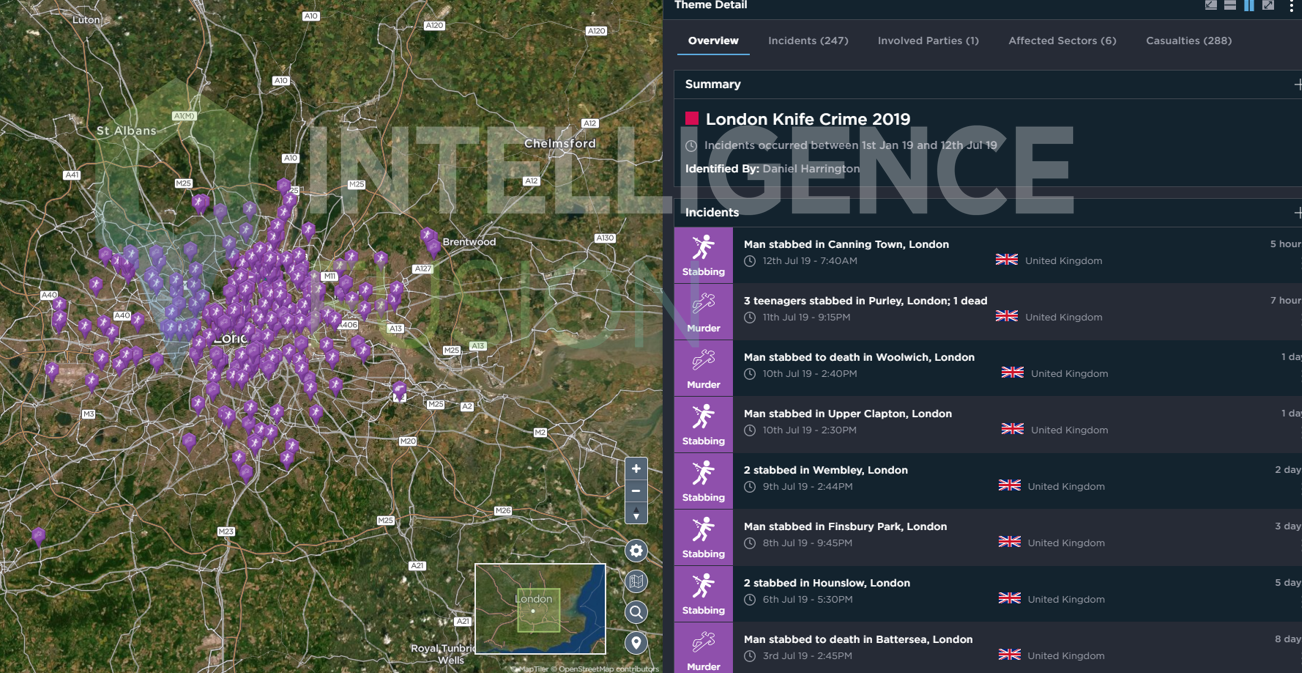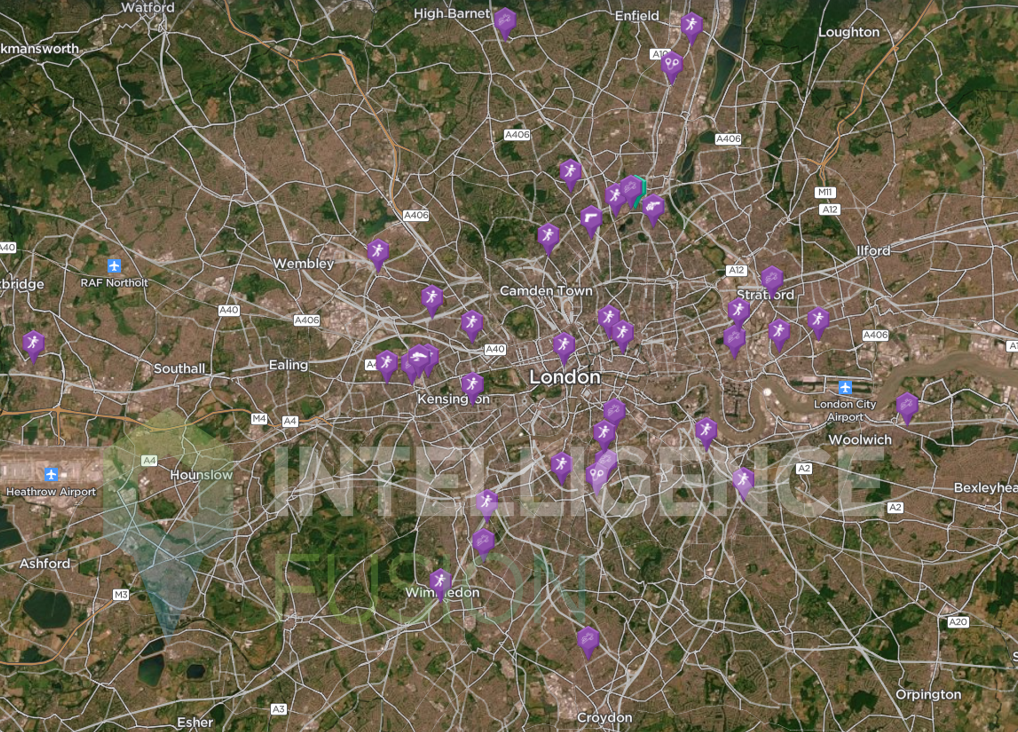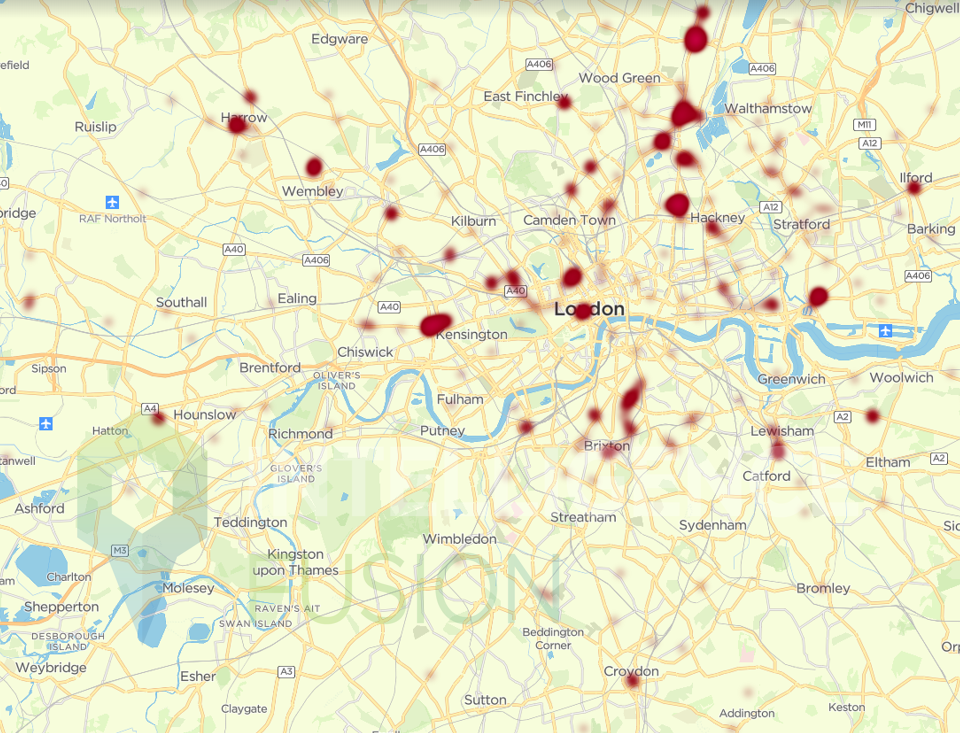Knife Crime in London: Drugs, Gangs and Policing
The growing trend of knife crime in London is becoming increasingly prevalent in the news media, making headlines across the world. But what’s behind the city’s surge in violence?
Recently, even the US president, Donald Trump, has been tweeting about the increase in violent crime in the capital. Trump criticised London Mayor, Sadiq Khan, labelling him as ‘a national disgrace’ as part of an ongoing feud between the two political figures.
Whilst political commentators and figures have raised the issue internationally, it’s the local residents of London who are increasingly voicing their fears and frustration over rising violent crime within the capital.
Some are even taking it upon themselves to fight the epidemic. Courtney Barrett, an east London resident, set up a DIY knife amnesty bin in the Borough of Waltham Forest. Speaking to The Guardian, Barrett said; “There’s not enough police nowadays – we have to start fending for ourselves.”
After seeing a monumental increase in knife attacks close to his home in Leytonstone, he created the ‘Binning Knives Saves Lives’ initiative back in May and has since taken over 140 knives off the streets.

The Causes
London residents have expressed concern about the lack of effective police patrolling and visibility on the streets as well as drug dealers openly distributing and consuming their product out in public. Government cuts to policing, under the policy of Austerity, led to officer numbers in London to drop to their lowest level per head in 20 years, falling from 4.1 per thousand Londoners in 2010 to 3.3 per thousand in 2018.
Lack of police numbers have in turn led to a reduction in visible police patrols out on the ground and increased freedom of movement for criminal gangs across London. Indeed Sadiq Khan, who took office in 2016, has admitted violent crime has been increasing both in London and across the country since 2014.

Drug trafficking and organised criminality has directly contributed to an increase in knife crime with gangs involved in turf wars over territory and distribution rights. Metropolitan police records illustrate that half of all deaths involving knives are directly linked to the drugs trade and gang feuds.
Reduced police numbers and controversy over ‘Stop and Search’ racial profiling within London has emboldened criminal gang members to arm themselves with knives in an effort to protect themselves from rivals in their operating areas. It’s also not a coincidence that areas most affected by knife violence, according to Intelligence Fusion data, are also some of the most deprived areas of London. Using our threat intelligence platform, we can closely monitor trends and patterns within our data and visualise these themes as a heatmap. The tool shows that the highest concentration of incidents are found in Tower Hamlets, Newham, Haringey, Hounslow, Lambeth and Lewisham.
Critics have also linked the increase in violence to cuts in youth services, broken households and financial pressures forcing parents to spend the majority of their time working, leaving children vulnerable to influence by gang members.

The majority of both victims and perpetrators are members of ethnic minorities within London. According to the Mayor of London’s Office for Policing and Crime, two thirds of knife crime offenders under 25 in London were black or ethnic minority in 2017. Observers have stated that knife crime within these communities results from social insecurity and poverty. This leads to the growth of a drugs-based counter-economy which fills the gaps caused by austerity and lack of employment opportunities for youths. In the long term these issues must be resolved if the trend is to be reversed within these communities.
The Solution
In the meantime, greater investment in both police resources and community engagement needs to be addressed. School children in deprived neighbourhoods need greater awareness of the dangers of gang life and to be deterred from being recruited into gangs. The London Mayor’s policy of treating knife crime as a public health issue, over time, may arguably resolve some of those matters within communities, but will be ineffective in providing rapid results. Old fashioned policing methods such as increasing stop-and-search powers in affected areas, in the short term, is a measure much needed to deny freedom of movement to gang members.
With less resources on the ground, more effective intelligence led policing must also be enacted leveraging police numbers at crucial times or locations. Identifying problem neighbourhoods, engaging in robust and visible police patrolling in those areas, and actively denying gangs the opportunity to operate and distribute drugs on the street are the immediate approaches needed to begin rectifying the issue.
Intelligence Fusion will continue to monitor the increase of knife crime in London as well as the steps taken by authorities in order to combat the trend. If your organisation requires real-time alerts on violent crime across the capital, or would like to take a closer look at our reporting for other parts of the world, speak to a member of the team today.

